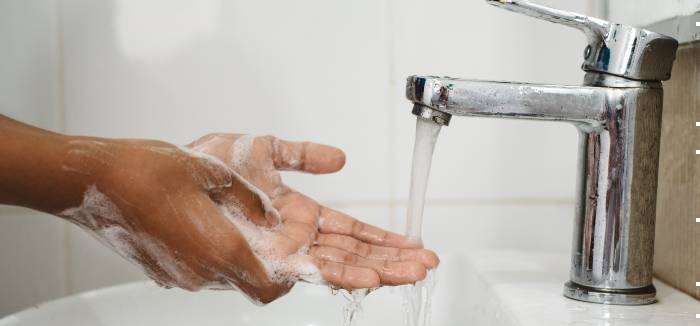
The Nigeria Centre for Disease Control and Prevention (NCDC) has urged Nigerians to prioritise hand hygiene for clean and safe health, in commemoration of the 2023 Hand Hygiene Day through its ‘Turn Nigeria Orange (TNO)’ programme.
While commemorating the day at the Asokoro District Hospital in Abuja, the assistant director of infection prevention and control (IPC) at NCDC, Dr. Tochi Okwor emphasised the importance of proper and frequent hand washing to reduce the risk of infections and promoting healthy living.
The World Health Organisation (WHO) defines hand hygiene as the washing of hands with soap and water or the use of alcohol-based hand sanitisers, which is widely accepted as the cornerstone of infection control in hospital settings. Despite this, several studies have shown that adherence to hand hygiene guidelines remains low, and improvement efforts often lack sustainability.
According to Okwor, good hand hygiene can save lives and prevent the transmission of infections. She called on Nigerians to prioritise hygiene and hand hygiene, particularly at a critical time when governments at all levels, partners, and healthcare facilities need to accelerate the implementation of lessons from the COVID-19 pandemic and increase investments to close gaps in infection prevention and control (IPC), including hand hygiene.
Okwor also stressed the need for policymakers, professional groups, health workers, and patients to unite in ensuring clean hands. Clean care is a sign of respect to those who seek care, and it protects the health and other workers who provide that care.
This year’s theme for World Hand Hygiene Day is “Together, we can accelerate actions to prevent infections and anti-microbial resistance (AMR) in healthcare and build a culture of safety and quality in which hand hygiene improvement is given high priority”. The campaign focuses on recognising that Nigerians can contribute to a facility’s climate or culture of safety and quality through partnerships and building a strong coalition with all relevant stakeholders, including the media, CSOs and patient groups, to build and sustain hand hygiene at all points of care in the facility and communities.
The programme officer of IPC at the Institute of Human Virology Nigeria (IHVN), Mr. Chika Igbokwe emphasised that IHVN, as partners with NCDC, is reinforcing the importance of hand hygiene practice among healthcare workers to break the chain of infections. Healthcare facilities face many challenges, and the burden of care and workload is quite high. Therefore, healthcare workers need to understand that reducing the burden of infection ultimately reduces the workload because breaking the circle of that chain of infection creates an atmosphere where fewer patients are coming to the facility, which in turn reduces the workload of the healthcare worker.
Dr. Elujide Oluwasogo from the APIN Public Health Initiatives stated that the organisation supports health facilities in implementing HIV programmes in the country. Under the country’s theme “One nation, one plan, turning Nigeria orange,” NCDC is supporting partners to ensure that facilities APIN supports are in the orange network in infection prevention and control.
The essence is to ensure that those health facilities are strong in infection prevention and control. Healthcare workers are trained to be the change agents in the community, training people on the importance of hand hygiene to reduce infection among people.
Experts suggest that one potential reason for low compliance with hand hygiene is that healthcare workers fail to realise that they are carrying organisms in their hands because pathogens are not visible. Another possible reason for noncompliance is that the healthcare workers are unable to associate their contact with the patient when the pathogen is perhaps transmitted from the healthcare workers’ contaminated hands. Another possible reason that leads to noncompliant behaviour toward hand hygiene is that healthcare workers are less likely to get hospital-associated infections (HAIs). The lack of compliance with hand hygiene is related to the cost of time for HCWs, and the unavailability of hand rub dispensers.
In conclusion, clean hands are essential to maintaining good health and preventing the transmission of infections. The NCDC has called on Nigerians to prioritise hand hygiene, and governments, partners, and healthcare facilities to increase investments in infection prevention and control (IPC), including hand hygiene. It is crucial to act now and accelerate actions to prevent infections and antimicrobial resistance (AMR) in healthcare and build a culture of safety and quality in which hand hygiene improvement is given high priority.

